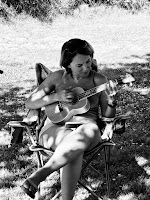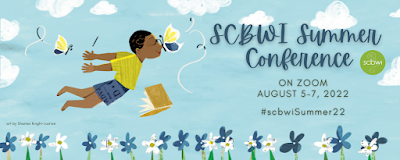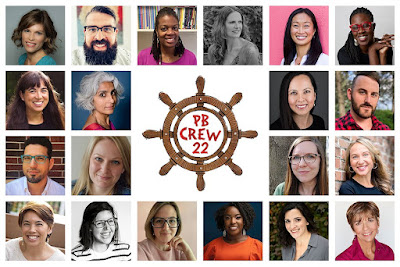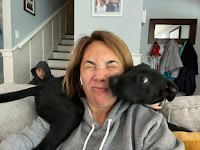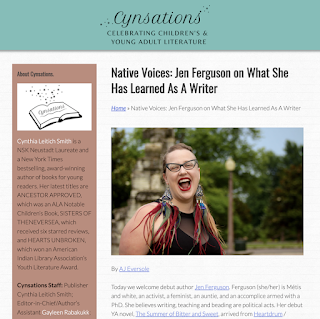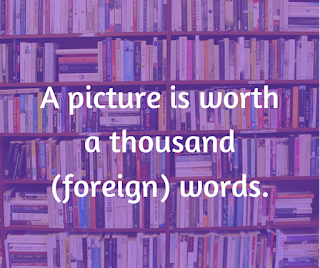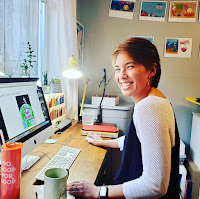A "yes" person.
I'm certainly getting better about this as I get older, but I've accepted that it's in my nature to make others happy. Sometimes to my own detriment.
"Ellie, can you help us design a new school mascot?" Sure. "Would you read my manuscript... again.?" You bet. "How about being the SCBWI guest blogger for the month of July, even though you're finding out about this in June?" Why not? (Actually, this last one has been a lot of fun and I'm going to miss posting!)
Now, I don't agree to anything that I know will make me miserable, and to be honest, I've gained a lot of opportunities and connections by being so darn agreeable. However, when it comes to my artistic vision versus an editors' desires for the work, it can be hard to know when and where to stand my ground.
These conflicts occur throughout the process of creating a book, from conception to publication, but I personally struggle with this most when resolving line art edits. Line art is a stage of book illustration that is more refined than loose sketches, but not all the way to full color, final art. Not all illustrators create line art, many go from sketches to finals, but I personally like this in-between stage as I think it results in fewer edits and changes of final art.
Most editorial suggestions are easily resolvable or ones where I can clearly see I've erred and need to fix my work. And I remind myself frequently, that at this point in my career, my editor and AD likely have many years of experience and many, many books under their belt. Their suggestions are the result of careful observation of what does and does not work in publishing. Not only that, but I have found that all the editors and ADs I've worked with are very considerate of the illustrator's vision, time, and energy and aren't capricious with their suggestions.
In another project about monarch butterfly migration, I named a fictional school in the background after a murdered butterfly activist, Homero Gómez González. For me, this is an homage to a conservationist who selflessly worked to point out the dangers of tourism and logging to monarch populations. For the editor, there are potential legal issues with using the name and permissions may need to be considered. For the time being, they've asked me to leave the school without a name.
- Does my vision offer something unique to the work? What does it offer? (Humor, education, an opportunity for personal reflection, etc.)
- Do I have expertise or experience that lends my opinion more weight on this particular matter? (This is especially important with nonfiction work.)
- Is my decision based on personal or universal values? What values and why is that important to me?
- How much time and energy will be involved in making the change?
- If I make the requested change, how will I feel when I look at it (repeatedly) in the final product? Will I feel regret every time I turn to that page?
